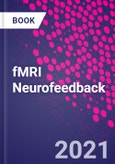fMRI Neurofeedback provides a perspective on how the field of functional magnetic resonance imaging (fMRI) neurofeedback has evolved, an introduction to state-of-the-art methods used for fMRI neurofeedback, a review of published neuroscientific and clinical applications, and a discussion of relevant ethical considerations. It gives a view of the ongoing research challenges throughout and provides guidance for researchers new to the field on the practical implementation and design of fMRI neurofeedback protocols.
This book is designed to be accessible to all scientists and clinicians interested in conducting fMRI neurofeedback research, addressing the variety of different knowledge gaps that readers may have given their varied backgrounds and avoiding field-specific jargon. The book, therefore, will be suitable for engineers, computer scientists, neuroscientists, psychologists, and physicians working in fMRI neurofeedback.
Please Note: This is an On Demand product, delivery may take up to 11 working days after payment has been received.
Table of Contents
1. A brief history of real-time fMRI neurofeedbackSECTION 1: Introduction methods section
2. Analysis methods for real-time fMRI neurofeedback
3. Protocol design in fMRI neurofeedback studies
SECTION 2: Introduction basic science section
4. fMRI neurofeedback for perception and attention
5. Studying episodic memory using real-time fMRI
6. Using fMRI neurofeedback to interrogate emotion, motivation, and social neurocognition
SECTION 3: Introduction clinical section
7. Design of clinical studies in neurofeedback
8. fMRI neurofeedback for disorders of emotion regulation
9. The treatment and study of psychiatric disorders with fMRI neurofeedback
10. Implicit decoded neurofeedback training as a clinical tool
11. Hemodynamic neurofeedback in neurorehabilitation
12. Translation to the clinic and other modalities
13. Mechanisms of fMRI neurofeedback
14. Ethical considerations for fMRI neurofeedback
15. Resource reference for fMRI neurofeedback researchers








